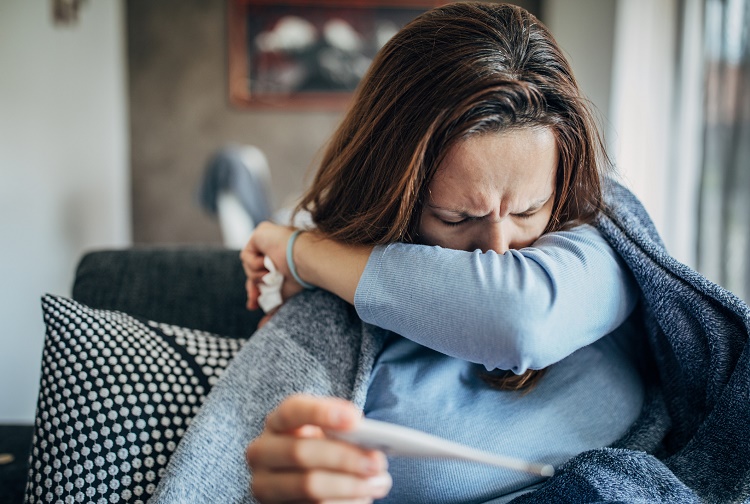
How bad is it? Dr. Richard Wenzel on COVID-19
World renown infectious disease expert Dr. Richard Wenzel of VCU Health offers a historical perspective on COVID-19.
November 18, 2020
 Dr. Richard Wenzel (Photo: Jeff Cherry Design & Photography)
Dr. Richard Wenzel (Photo: Jeff Cherry Design & Photography)
Contributed by the MCV Foundation
One of the world’s leading infectious disease experts, Dr. Richard Wenzel has been quoted by The New York Times, NPR and CBS News, among other national news outlets. The former chair and professor of the Department of Internal Medicine at VCU School of Medicine, now retired, has participated in numerous regional, national and international webinars on COVID-19, including safety measures to prevent infection and spread.
Here, Dr. Wenzel answers questions on the significance of the COVID-19 pandemic, how it compares to past pandemics and how what we learn now can help us handle future pandemics.
Based on what is known about past pandemics and how technology has evolved, did you or the medical community think a pandemic like COVID-19 could happen?
I was not surprised with the arrival of the new pandemic. Looking back 40 years, I note the emergence of HIV in the 1980s, SARS in 2002-2003, H1N1 influenza in 2009- 2010, MERS in 2012, and now SARS-CoV-2 causing COVID-19. All of these are zoonoses — diseases that leap from animals to people. We are witnesses to the inevitable march of pandemics at roughly 10-year intervals.
These are all predictable pandemics — not unpredictable events bringing dangerous consequences. The only uncertainty about pandemics is when they’ll appear and how severe they’ll be. We should no longer be surprised.
What is the historical significance, in terms of medicine and public health, of what we’ve been through this year?
This is an unprecedented pandemic in terms of its medical, social and economic impact, contagiousness and uncertainty. The last one of this prominence was the influenza pandemic of 1918-1919, 100 years ago.
Every child and young adult who looks back to this period in the next 100 years will recall living through COVID-19, what each saw and did that year, the stories their parents recited, and how it disrupted their lives. As an optimist, I think we will have more therapies and an effective vaccine in the next year.
Have any lessons been learned in case another pandemic threatens us in our lifetime?
The memory of past pandemics fades quickly after the infection subsides. We seem to view each one as a unique thunderbolt falling unexpectedly from the sky, and we’re forced to relearn the same lessons each time.
Instead, what we should do between pandemics is build robust preparedness and assume the next one will be worse than the present one.
The lessons are clear: We need robust surge capacity, a national pandemic response team with periodic simulations to rehearse our responses to a pandemic, a designated leader and the recognition that we are a part of a global world. We need a national plan and a designated national spokesperson with an appreciation for science to lead a team with skills for explaining the policies needed for control.
We need to reinstate the PREDICT program to examine and catalog newly emerging viruses in Asia and Africa that might cross species and jump to people. We should keep a log of what worked and what failed in our earlier pandemic responses and in our response to the economic challenges.
What else should people know about COVID-19?
What we’ve learned about COVID-19 is that it is highly contagious and deadly, more so than seasonal influenza. It is transmitted by respiratory droplets, and 20% of infected “super-spreaders” account for 80% of transmissions.
The vast proportion of transmissions occur indoors, not outside. Masks, social distancing and contact tracing with quarantine of contacts work to limit transmission.
With cases of infection and deaths rising internationally, and with currently rising rates in half of the states in our country, some at record levels, we need to fight our instincts to drop our guard and to resume public openings too soon and too casually.
What can people do to support COVID-19 patient care, research and education?
Donations to organizations like the MCV Foundation allow talented scientists and public health investigators to ask critically important questions affecting health in individuals and populations, explore their ideas and publish their findings. These donations are the life-blood of progress to an increasing quality of existence for people around the globe.
The educational activities these organizations support bring attention to the institution and further attract leading clinicians, scientists and administrators seeking an academic community striving for excellence in all facets of medicine.
Richard P. Wenzel, M.D., M.Sc., is one of the leading infectious disease epidemiologists in the world. He is an emeritus chair and professor at VCU School of Medicine, founding editor of two scientific journals, editor-at-large for the New England Journal of Medicine and a member of the MCV Foundation Board of Trustees.
This story was originally published in the Chronicle of Giving, published by the MCV Foundation. For more stories like this, please visit the Chronicle of Giving.



